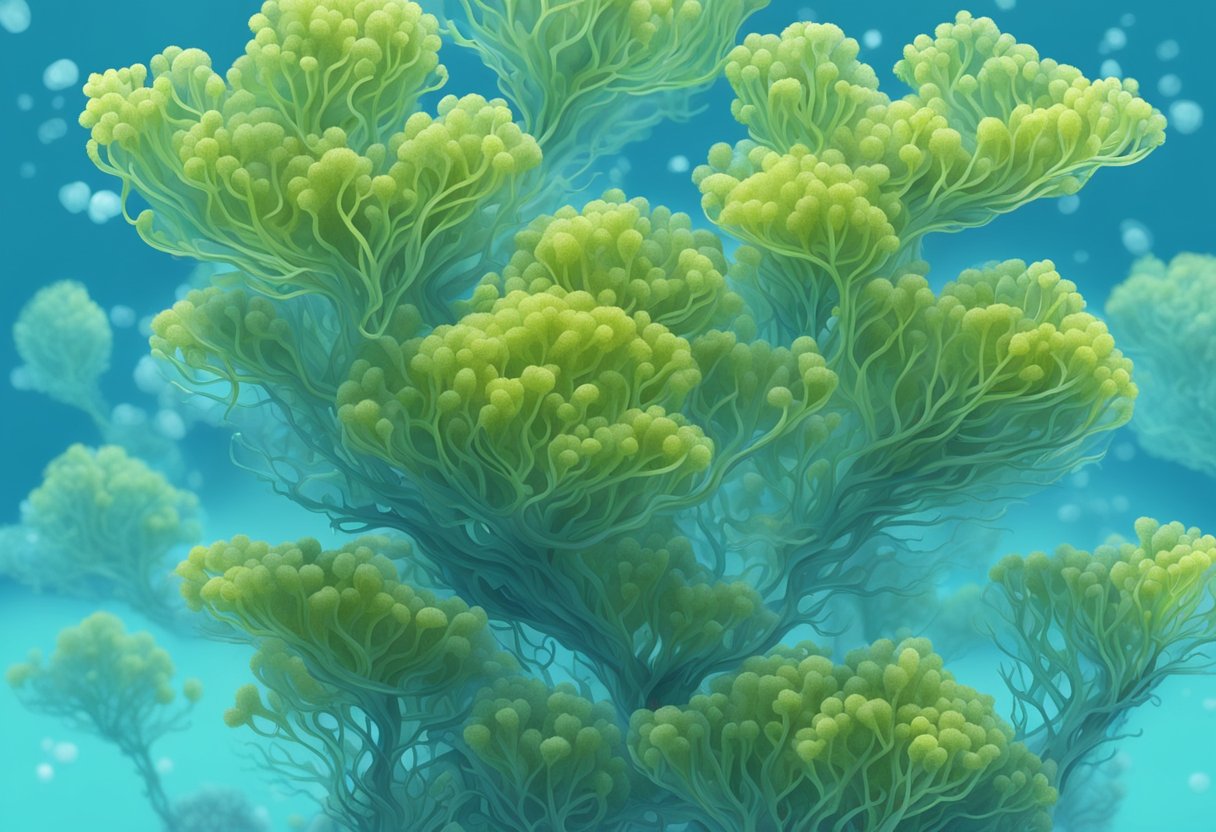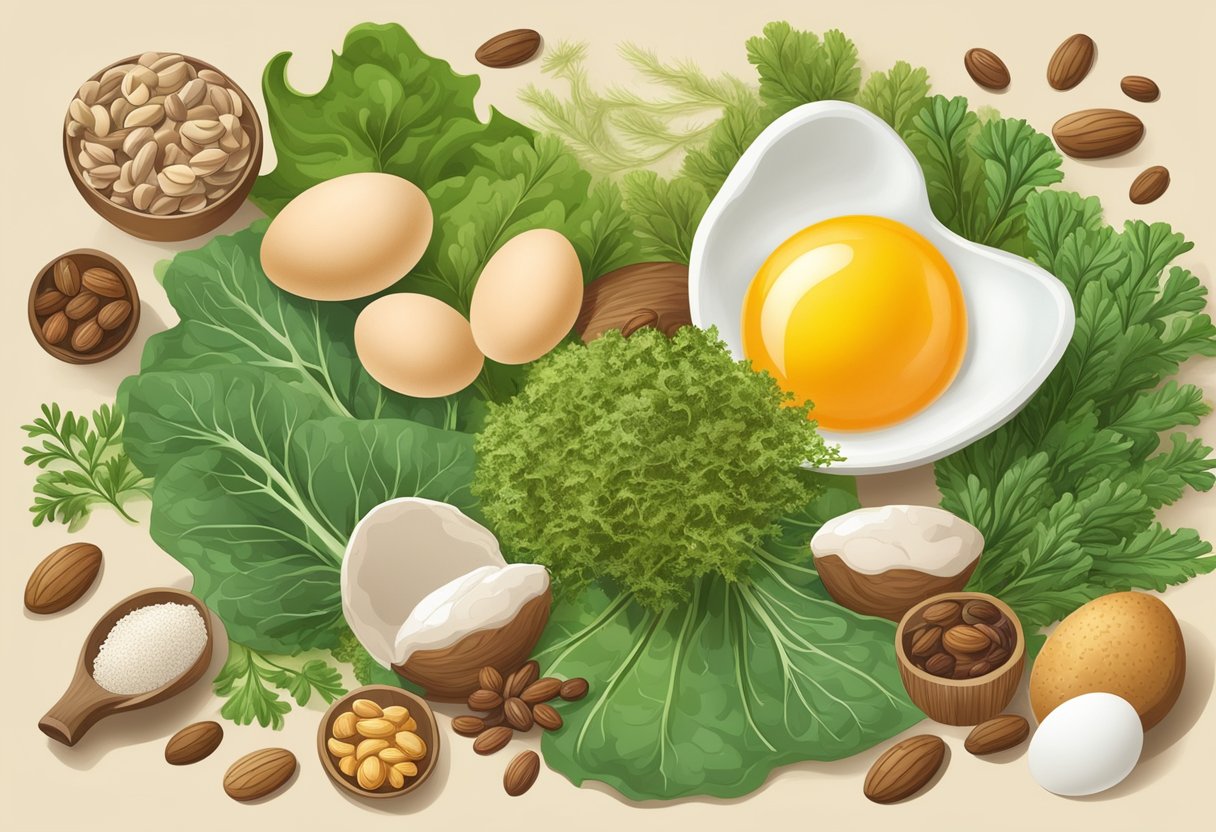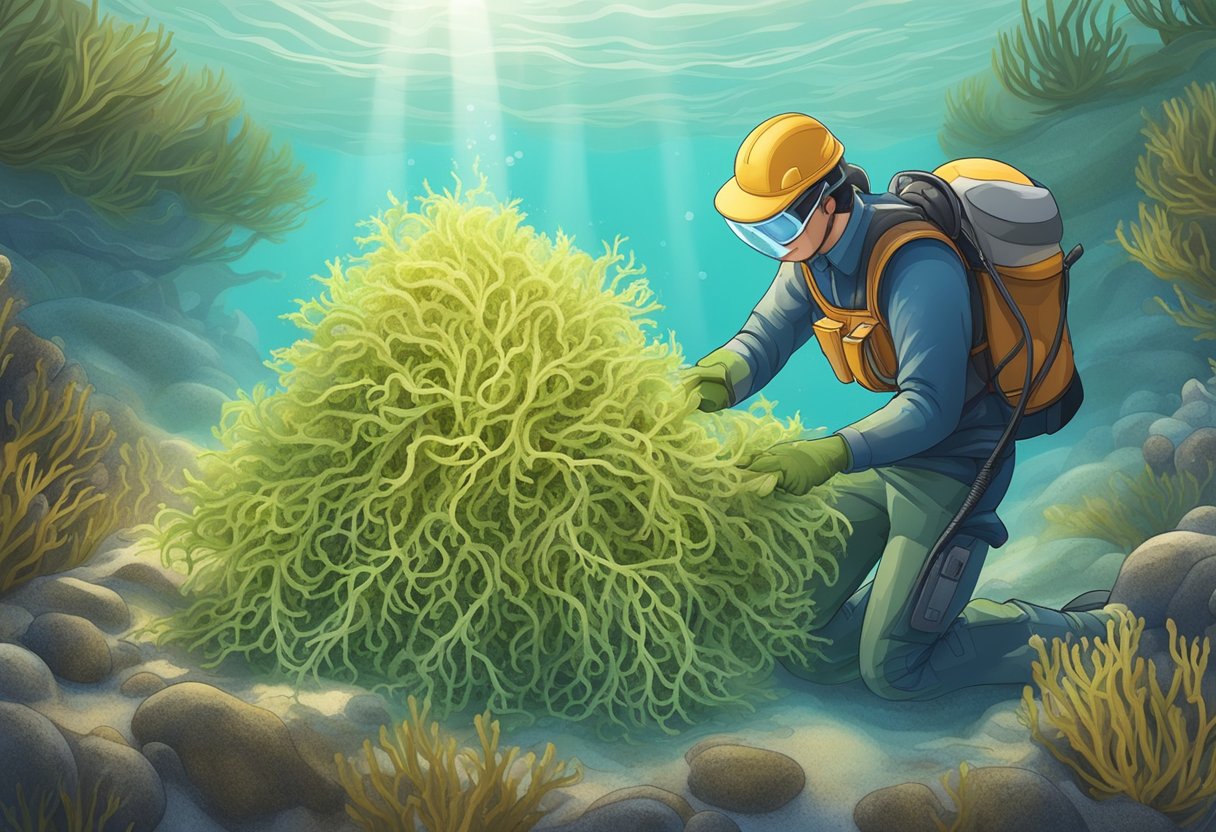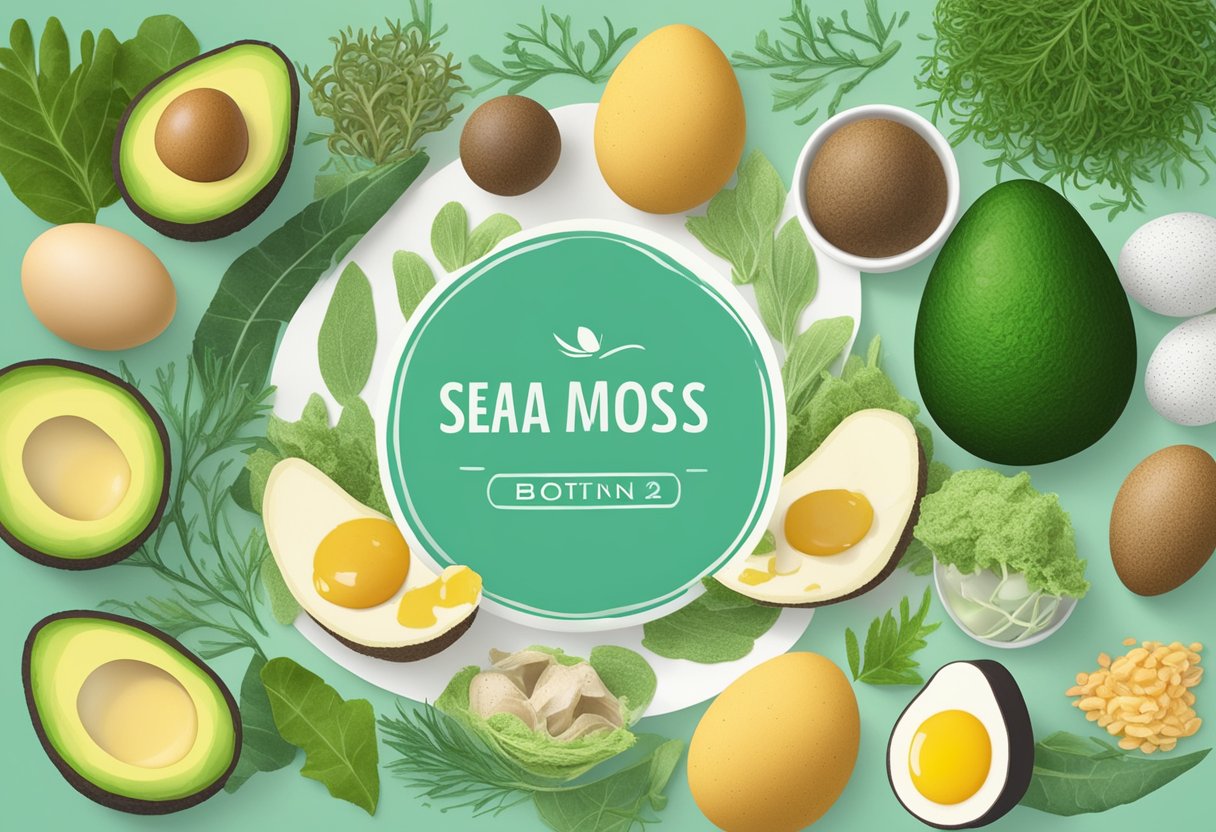Sea moss has gained popularity in recent years as a nutritional supplement. It is praised for its high vitamin and mineral content, which includes iodine and potassium among others. With the increasing interest in its health benefits, many are curious about the presence of biotin, a B-vitamin known for supporting skin, hair, and nail health, in sea moss.
Given that sea moss has been adopted into many health regimes for its purported benefits, understanding its nutritional profile is crucial. Biotin is an essential nutrient which the body requires to metabolize fats, carbohydrates, and amino acids. It is naturally present in a variety of foods, so the question arises: does sea moss also contribute to the dietary intake of biotin?
Key Takeaways
- Sea moss is full of essential vitamins and minerals, including biotin.
- Biotin plays a critical role in metabolizing fats and proteins.
- Knowing the nutritional content of sea moss helps inform safe consumption practices.
Biotin in Sea Moss

Sea moss, a type of red algae, contains nutrients beneficial for health, including biotin, also known as vitamin B7, which supports metabolism and skin, hair, and nail health.
Biotin Content Analysis
Research indicates that sea moss includes various vitamins and minerals. Biotin, specifically found in sea moss, is present in trace amounts. Quantitative analysis shows that the biotin content in sea moss can vary depending on the harvesting area, season, and preparation method. While sea moss does contain biotin, it is not among the richest sources when compared to biotin levels typically found in foods such as eggs, nuts, and whole grains.
Comparison to Other Biotin Sources
| Food Source | Biotin Content (average) |
|---|---|
| Sea Moss | Trace amounts |
| Eggs (whole, cooked) | 10 - 35 micrograms |
| Almonds (raw) | 1.5 - 2 micrograms per 28 grams |
| Whole grain bread | 0.02 - 6 micrograms per slice |
Considering the biotin content, sea moss is less concentrated in biotin than other common dietary sources. Nevertheless, its inclusion in diets is justified by the complementary array of nutrients it provides, which together may support overall vitality and wellness.
Health Benefits

Sea moss is known for its high vitamin and mineral content, while biotin, a B-vitamin, plays a crucial role in health.
Sea Moss Benefits
Nutrient-Rich: Sea moss contains 92 of the 102 essential minerals needed by the human body. It's especially rich in iodine, which is critical for thyroid function, as well as iron, magnesium, calcium, and potassium.
Digestive Health: The high fiber content of sea moss can help to promote a healthy digestive system. It serves as a prebiotic, feeding the good bacteria in the gut and contributing to better gut health.
Biotin Benefits
Skin, Hair, and Nail Support: Biotin contributes to the maintenance of healthy skin, hair, and nails. Deficiencies in biotin can lead to hair loss and skin issues.
Metabolism and Energy: Biotin plays a key role in metabolizing fats, proteins, and carbohydrates, assisting in the conversion of food into usable energy.
Consumption and Safety

When incorporating sea moss into one's diet, it is crucial to adhere to recommended dosages and be aware of potential risks and interactions that may arise.
Recommended Dosage
The appropriate amount of sea moss to consume can vary based on the form it is taken in – whether as a gel, powder, or whole seaweed. Daily intake should not exceed:
- Powder/Gel: 1-2 tablespoons
- Dried: 4-8 grams
Quantities above this level have not been proven to confer additional benefits and might increase the risk of side effects.
Potential Risks and Interactions
Sea moss is generally safe for most people, but it's important to consider the following:
- Allergies: Individuals with iodine or seafood allergies should avoid sea moss.
- Thyroid Function: Due to its high iodine content, sea moss can affect thyroid function.
- Medication Interference: Sea moss might interact with certain medications, especially blood thinners and thyroid medications.
Always consult a healthcare provider before adding sea moss to one's regimen, particularly when taking other supplements or medications.
Frequently Asked Questions

In assessing sea moss as a source of biotin, it's beneficial to compare it with other natural sources.
How does sea moss compare to other sources of biotin?
Sea moss is acknowledged for its numerous vitamins and minerals, contributing to its reputation as a superfood. While it contains some biotin, it is not as concentrated in biotin as other foods like liver, eggs, nuts, and legumes. Therefore, individuals seeking to increase their biotin intake may need to incorporate a variety of biotin-rich foods along with sea moss into their diet.

